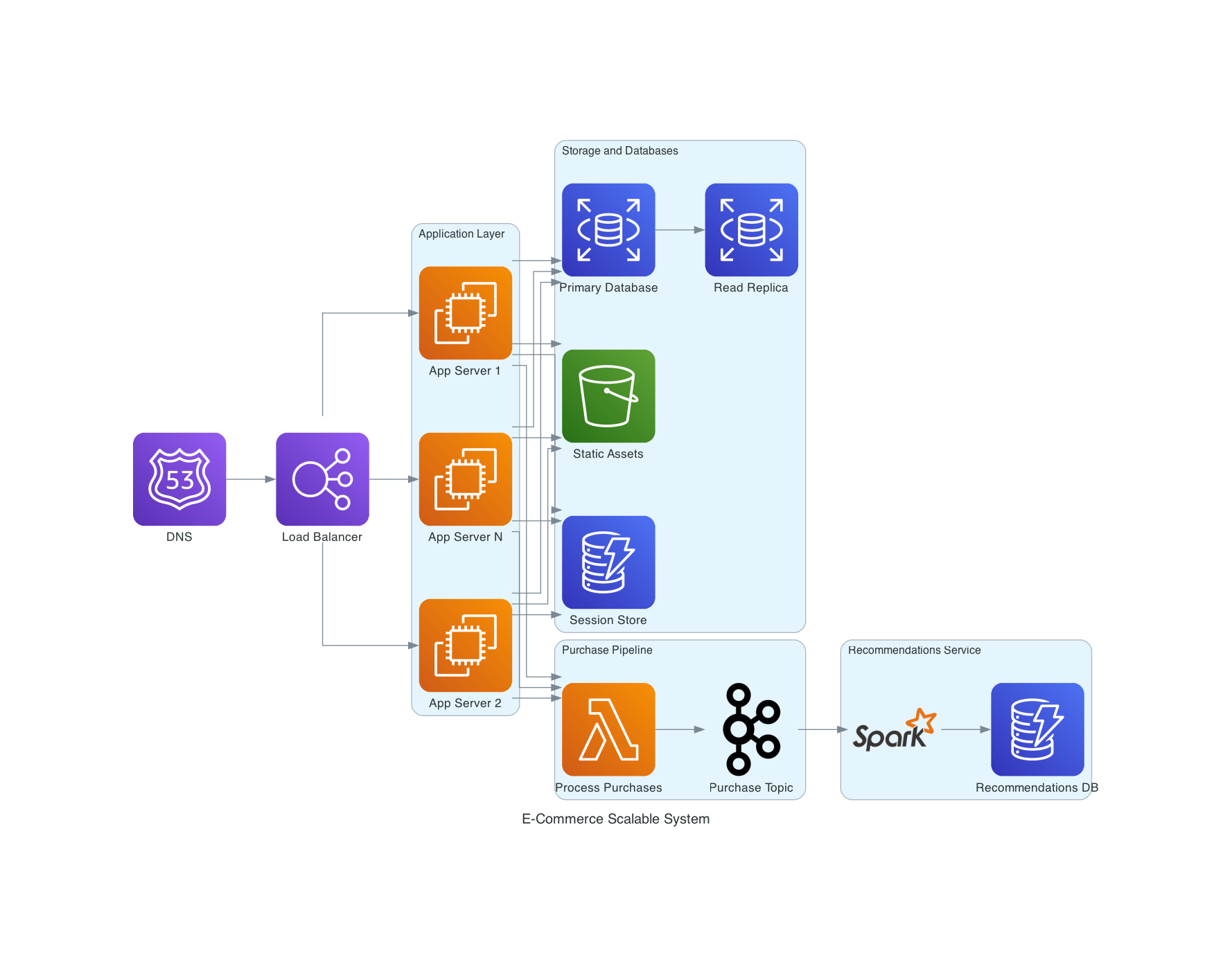
How to Become a Software Architect - The Complete Guide
If you’re an experienced software developer and want to take your career to the next level, becoming a software architect is a natural and rewarding next step.
Becoming a software architect and technical lead not only helps you grow your career and increase your impact, but also future-proofs your career against the threat of AI.
In this guide, I’ll walk you through the skills, mindset, and steps needed to transition into a software architect role.

Step-by-Step Guide on How to Pass the iSAQB CPSA-F Certification
f you're a software engineer looking to transition into a software architect role, the Certified Professional for Software Architecture – Foundation Level (CPSA-F) certification by iSAQB is an excellent way to acquire the relevant skills and also earn an internationally recognized certification.
But how exactly do you pass the iSAQB CPSA-F exam, and what should you expect from the process?
In this guide, I'll walk you through each step to get CPSA-F certified.

What Exactly Does a Software Architect Do?
If you're a mid-level or senior software engineer wondering about the next step in your career, you've probably considered the role of a Software Architect. But what exactly does this role entail, and how can you master software architecture?

How to Create Software Architecture Diagrams with Code - The Software Architects’ Toolbox
Software architecture diagrams are essential for visualizing systems and communicating the software architecture to stakeholders.
The "diagrams-as-code" approach allows software architects to describe software architecture components and their relationships through code. By using code to describe software architecture diagrams, you enable tracking changes with version control and seamless integration into development workflows.

How to Become a Solutions Architect: Skills, Certifications, and Career Path
Solutions Architect is one of the most critical roles in today’s technology-driven world. As a solutions architect, you enable businesses to solve complex challenges, such as integrating different technologies while ensuring the final product is secure, performant, and scalable. This article will guide you through the essential skills, certifications, and steps needed to excel in this exciting career.

TOGAF vs. CPSA-F: Which Software Architecture Certification is Right for You?
Choosing the right software architecture certification can be a game-changer for your career. Two of the most widely recognized certifications in the architecture field are TOGAF (The Open Group Architecture Framework) and CPSA-F (Certified Professional for Software Architecture - Foundation Level) by iSAQB. Each opens doors to distinct roles and career paths.
In this article, we’ll explore the unique advantages of TOGAF and CPSA-F and guide you toward the one that can make the biggest impact on your future as a software engineer, developer, or IT professional.

Become a Certified Software Architect: The Benefits of CPSA-F Certification
Discover the value of Software Architecture training and certification, such as the Certified Professional for Software Architecture - Foundation Level (CPSA-F)
Learn how it can help you advance your career, become a software architect, and stand out in today's competitive job market with our accredited, self-paced training.

Demystifying Microservices Architecture - Benefits and Challenges
Did you know that over 80% of companies are modernizing their applications and adapting microservice architecture?
If you are a current or aspiring software architect wondering why Microservices Architecture keeps gaining popularity, you have come to the right place.
In this article, we will cover the benefits and challenges of Microservices Architecture and why the top tech companies are rapidly adapting it.

Best Distributed Caching Technologies for Architecting High-Performance Systems
One of the biggest difficulties in modern large-scale systems is the ever-growing volume of data and user interactions.
Companies are expected to grow but maintain the same high performance and responsiveness while keeping infrastructure costs within budget.
Caching is a powerful solution for optimizing the performance of large-scale systems.
In this article, you’re going to learn about the top distributed caching technologies for architecting high-performance, large-scale systems.

Top 5 AWS Services for High Scalability Every Software Architect Must Know
With the ever-increasing demand from users and the need to handle unpredictable traffic spikes, scalability has become the biggest.
AWS has been offering services that simplify architecting and deploying highly scalable systems, allowing Software Architects to focus on innovative designs and building a profitable business.
In this article, we will cover the 5 most important AWS services any software architect needs to know to build highly scalable systems on AWS.

The 5 Reasons Why System Design Interview Questions are Hard and What to Do About It
System Design Interviews are an integral part of the hiring process for almost all tech companies.
However, most software engineers struggle with System Design Interviews. In the article, we will understand why System Design Interviews are so hard for even the most experienced software developers and, most importantly, what to do about it.

Top 5 Books for Software Engineers and Software Architects
Software engineers need to keep learning, continuously to be successful at their job.
In this article I will share with you the 5 top books for learning and improving your software architecture and software development skills.

Python Multithreading vs. Java Multithreading - Important Considerations for High Performance Programming
Multithreading is critical for production applications because it unlocks features and capabilities that are otherwise out of reach.
In this article, we will look at concurrency using multithreaded programming in two of the most popular languages, Python and Java.

Java PriorityBlockingQueue - Thread-Safe and Memory Efficient Concurrent Heap
In this article, we are going to learn about a very important thread-safe and memory-efficient data structure implementation, the PriorityBlockingQueue. We will first start by comparing it to the traditional heap-based PriorityQueue implementation, and later we will see what concurrency and performance-related features and guarantees the PriorityBlockingQueue provides to us.
Finally, we will write some Java code to see how a PriorityBlockingQueue is used in a practical real-life example.

Java ArrayBlockingQueue - A High Performance Data Structure for a Multithreaded Application
The queue data structure is the best choice for storing and retrieving elements in a First In First Out (FIFO) order.
In this article we’re going to explore the ArrayBlockingQueue class, which provides superior properties and guarantees for high performance, multithreaded, Java production applications.

What makes JUnit the most popular Java Framework
JUnit is the most popular and widely used framework for unit testing in Java. Recent surveys show that it is also the most commonly included external library in Java projects.
In this article, we are going to explore the 2 features formula that makes any Java library a hit among Java developers.

Top 3 Tips to Improve your Java Application’s Performance
For many years Java had a bad reputation for being slow….throughout the years, there have been many advancements made in the JVM itself, that more than compensate for all those inefficiencies. And in recent years we see more and more companies use Java to develop low latency, high-performance applications for high-speed trading, scientific simulations, real-time bidding, mobile games, and more.

The Hidden Benefits of Java Multithreading
When we think of the benefits of multithreading in Java, the following two often come to mind: high performance through parallel execution, and multitasking achieved through concurrency. However, there is a third benefit to multithreading that is often overlooked.

Apache Kafka for Modern Distributed Systems
With the growing popularity of digital services, many companies have to handle millions and even billions of requests per day. Depending on the digital product, those requests can come from third-party services that call their APIs or from real human users that use their online services. This large scale of operation forces software companies to abandon the traditional centralized software approach and migrate to distributed systems instead.

Top 3 Projects for Java Concurrency
The threading model is important for achieving high performance and responsiveness for your application, but getting it right is a challenge. In this article we’ll explore my top 3 picks for toolkits and frameworks for concurrency and multithreading.
